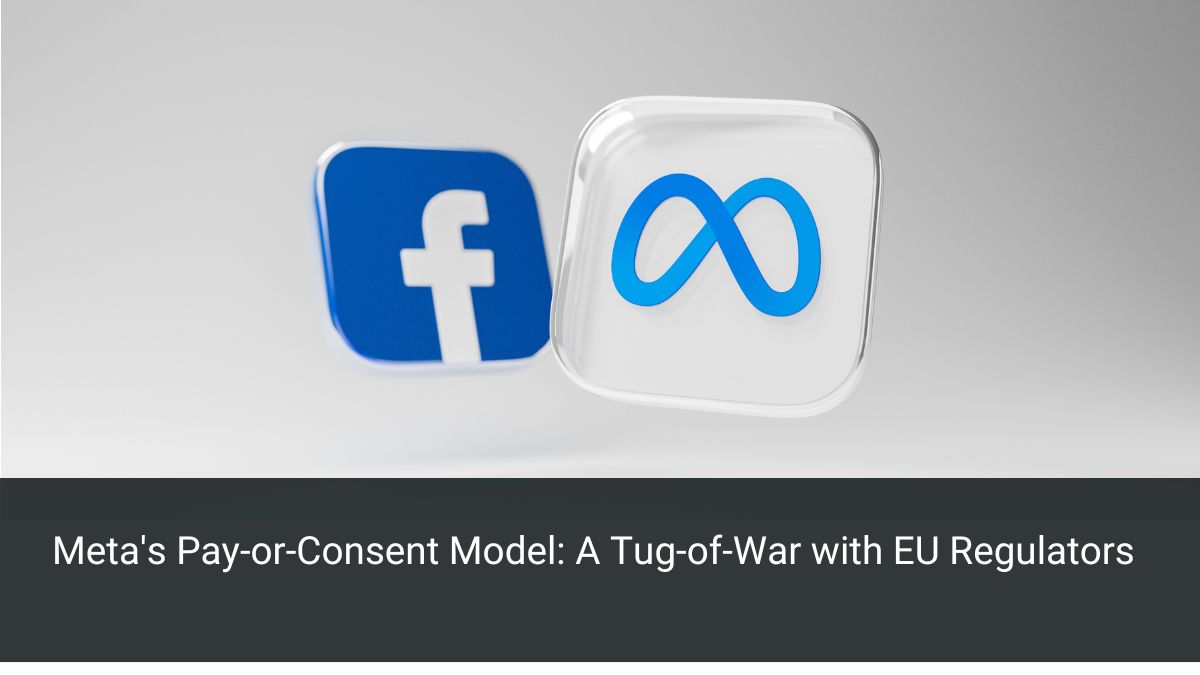Social Media
Meta’s Pay-or-Consent Model: A Tug-of-War with EU Regulators

In the ever-evolving landscape of digital privacy and tech regulation, a new battleground has emerged. Meta, the tech behemoth behind Facebook and Instagram, finds itself in the crosshairs of European Union antitrust regulators. The bone of contention? Meta’s recently introduced pay-or-consent advertising model, a strategy that has raised eyebrows and concerns in equal measure.
The Crux of the Matter
A Binary Choice That’s Not So Simple
Last November, Meta unveiled a new subscription service for its European users. The premise seemed straightforward: users could either consent to be tracked and continue enjoying a free, ad-supported service, or they could pay for an ad-free experience. On the surface, it appeared to be a move towards greater user choice and transparency. However, this binary option has now landed Meta in hot water with EU regulators.
The European Commission, the EU’s antitrust enforcer, has charged Meta with breaching the Digital Markets Act (DMA). This landmark legislation aims to curb the power of Big Tech and ensure fair competition in the digital marketplace. According to the Commission, Meta’s new model falls short of the DMA’s requirements in a crucial way.
The Devil in the Details
The crux of the issue lies in the nature of the choice presented to users. The EU argues that this binary option effectively forces users to consent to the combination of their personal data across Meta’s platforms. Moreover, it fails to provide an equivalent, less personalized version of its social networks as an alternative.
As someone who’s navigated the murky waters of online privacy settings, I can attest to the complexity of these choices. Often, the implications of our digital decisions aren’t immediately apparent, and the long-term consequences can be significant.
The Broader Context
A Tightening Regulatory Landscape
This charge against Meta is not an isolated incident. It’s part of a broader trend of increasing scrutiny and regulation of tech giants in the EU. Just a week prior, the EU watchdog issued its first DMA charge against Apple, signaling a new era of robust enforcement.
The DMA, along with its sister legislation the Digital Services Act (DSA), represents a significant shift in how the EU approaches tech regulation. These laws aim to level the playing field, promote competition, and give users more control over their digital experiences.
A Global Ripple Effect
While this particular charge is specific to the EU, its implications could be far-reaching. As a frequent traveler between the US and Europe, I’ve observed how regulatory decisions in one region often influence practices globally. Tech companies, operating on a global scale, often find it more efficient to implement stricter standards across the board rather than maintaining different practices for different regions.
Meta’s Response and Potential Consequences
Standing Their Ground
In response to the charge, Meta has defended its model, stating that it complies with a ruling from Europe’s top court. A Meta spokesperson expressed the company’s eagerness for “further constructive dialogue with the European Commission to bring this investigation to a close.”
This stance reflects the ongoing tension between tech companies’ business models and regulatory expectations. It’s a delicate balance between innovation, profit, and user rights that continues to challenge the industry.
The Stakes Are High
The potential consequences for Meta are significant. If found guilty of DMA breaches, the company could face a fine of up to 10% of its global annual turnover. To put this in perspective, given Meta’s 2022 revenue of $116.61 billion, the maximum fine could be in the ballpark of $11.6 billion.
However, it’s worth noting that Meta has the opportunity to modify its advertising model to avoid such penalties. The European Commission has until March 2025 to conclude its investigation, giving both sides time for negotiation and potential adjustments.
The Bigger Picture: Privacy, Choice, and Digital Rights
A Fundamental Shift in User Empowerment
At its core, this case reflects a fundamental shift in how we think about digital rights and user empowerment. EU antitrust chief Margrethe Vestager summed it up succinctly: “We want to empower citizens to be able to take control over their own data and choose a less personalised ads experience.”
This sentiment resonates with many users who’ve felt increasingly uncomfortable with the depth and breadth of data collection by tech platforms. As someone who’s become more privacy-conscious over the years, I’ve found myself grappling with the trade-offs between personalized services and data privacy.
The Complexities of ‘Free’ Services
The Meta case also brings to the forefront the ongoing debate about the true cost of ‘free’ online services. While users don’t pay with money, they pay with their data – a currency that’s becoming increasingly valuable in our digital economy.
This model has underpinned much of the internet’s growth, but as we become more aware of its implications, there’s a growing push for alternatives. The question is: are users willing to pay for privacy, and if so, at what price?
The Future of Digital Advertising and Privacy
As this case unfolds, it’s clear that we’re at a pivotal moment in the evolution of digital advertising and privacy rights. The outcome could shape the future of how tech companies operate in Europe and potentially worldwide.
For users, it’s a reminder of the importance of being informed and proactive about our digital rights. As we navigate this complex landscape, it’s crucial to stay engaged, ask questions, and make conscious choices about our online experiences.
The Meta case is more than just a regulatory skirmish – it’s a harbinger of the ongoing negotiations between technology, privacy, and user choice that will define our digital future. As we watch this story unfold, let’s consider our own roles in shaping that future. What kind of digital world do we want to live in, and what are we willing to do – or pay – to make it a reality?
